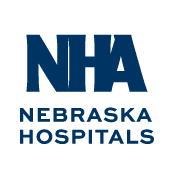Data-Driven Opioid Guardianship: A Health Care System's Blueprint for Change
The Opioid Guardianship program is a large-scale project spanning across Nebraska Methodist Health System focused on adhering to all opioid-related regulatory requirements and reducing unnecessary opioid prescription and usage.
Project Goals
- Adhere to all related regulatory requirements
- Reduce unnecessary narcotics prescribing and usage
- Create a roadmap for the Opioid Guardianship Program
Primary Metric
- Opioid prescribing at Discharge - Morphine Milligram Equivalent (MME)
- Goals to be set after initial analysis complete
Secondary Metrics – used to guide individual improvement efforts
- Inpatient opioid use
- Multimodal usage
- Patient education
- PDMP utilization
Data Task Force Planned Actions
- Additional analysis of opioid prescriptions per total prescriptions.
- NMHS to benchmark against local/regional VA hospitals.
- Total pills prescribed to dashboard.
- Partnership with NeHii to further improve PDMP access and features.
- Educate providers on best way to access and utilize the PDMP/PMP and better understand workflow issues.
Pharmacy Task Force Planned Actions
- Create plans to operationalize new initiatives passed for CMS, MU, JC that may require PDMP review prior to opioid prescribing and EPCS.
- Continue to work with Cerner for additional tools as well as investigate how to incorporate existing tools into the prescriber workflow.
- Integrated MME calculator.
- Investigate 2 prescription method for surgical patients to reduce leftover medications while addressing provider issues around weekend calls.
- Investigate potential changes to pain management protocols.
Clinic Task Force Planned Actions
- Tracking of PDMP use and policy.
- Standardizing location of pain contracts in EMR, renewal process, and maintenance policy.
- PDMP education.
- Continue communication and education with high prescribing providers based on data dashboard.
- Informatics support to set up favorites and PDMP access and MME calculator.
Hospital Enhanced Recovery Task Force Planned Actions
- Expanding Enhanced Recovery efforts across system.
- Reduce opioid discharge Rx as appropriate.
- Considering standardization of discharge narcotics based on type of surgery.
- Continued investigation of alternative pain control medications and methods.
The Joint Commission Task Force Planned Actions
- Addition of opioid education to patient discharge summary to help ensure education compliance.
- Pain PI is revising comfort menu in order to make it easier and more accessible for nursing to utilize.
- Purchase and implementation of capnography equipment.
- Review of opioid patient education compliance.
Community Task Force Planned Actions
- Continued partnership with Nehii.
- Continue to partner and educate throughout the region both within NMHS and interested community alliances.
Conclusion
Instituting a healthcare system-wide Opioid Guardianship Program required leadership support, project management, continuous improvement expertise, and creating an opioid database so as to develop a data-driven approach to institute change by identifying and reducing unnecessary prescribing and adhering to Nebraska LB 931.


